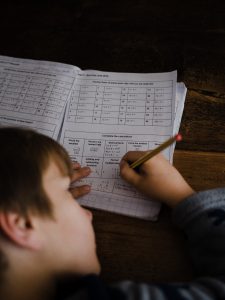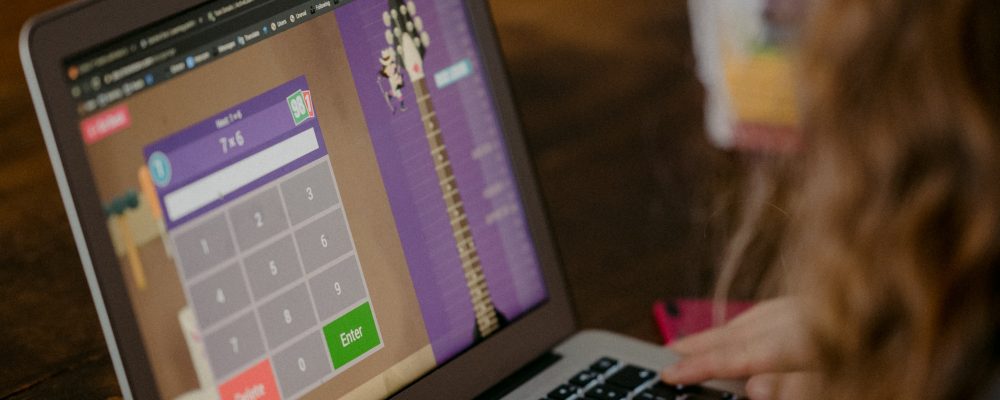The positive overall performance of Distance Learning programs implemented by Abu Dhabi’s private schools during the COVID-19 pandemic is the direct result of “organization, collaboration and inclusion” by schools, teachers, parents and inspection administrators, according to the Abu Dhabi Department of Education and Knowledge (ADEK).
“I am proud of the collective efforts of schools, teachers and parents in adapting to a very challenging education environment,” said H.E. Sara Musallam, Chairman, ADEK. “Before the closure of schools, we identified organization, collaboration and inclusion as our three core process metrics, and we worked diligently with parents and partners across the education ecosystem to ensure vital Distance Learning programs could be implemented and the results reflect that.”
During the recently concluded 2019/20 academic year’s period of Distance Learning, 173 private schools were evaluated over seven weeks by 21 Emirati and 18 international inspectors. The final evaluation results were overseen by 13 Quality Assurance officers. In total, 146 private schools, or 84% of all evaluated schools, scored the highest rating of ‘Developed’, with 27 private schools rated ‘Partially Developed’ (16%) and none rated ‘Not Developed’.
Two days before school closures, 160 Abu Dhabi-based private schools principals attended an ADEK workshop where they were updated on forthcoming closures and asked to submit a proactive Distance Learning strategy within 48 hours. Over 200 schools submitted plans, which were reviewed by ADEK and returned with next-stage feedback within five days.
To empower private schools’ infrastructure, ADEK harnessed partnerships with Alef Education, Microsoft Teams, Class Dojo, Amazon Web Services, MyOn and many others, to equip them with the required Distance Learning platforms and professional development needed.
Consistent ongoing communications were an essential element of success: From roundtables and focus groups to surveys with schools and stakeholders during Distance Learning, challenges were rapidly addressed and adjusted. ADEK also resolved more than 3,500 school enquiries via email and three telephone hotlines, while also compiling and updating dedicated online guides for educators, parents and stakeholders. Some schools were put into support network groups with stronger schools to ensure effective mentorship of the Distance Learning process and ease the transition from classroom to at-home education for schools and students.
Other ADEK measures included partnering with Zayed University to provide tutors to assist children of frontline workers at Sheikh Khalifa Medical City; and securing financial support via Ma’an to support eligible private school parents for tuition fee payments and learning devices. ADEK also provided12,500 devices to students in low and very low fee schools in addition to 7,000 SIM cards and 2,500 MiFi devices to ensure access to Distance Learning programs and enable access to more than 280 whitelisted educational websites.
Furthermore, the evaluation results revealed notable success in ADEK’s priority of safeguarding students online following clear guidelines advising parents and students on how to remain protected while studying digitally. The mandated guidelines advised on aspects such as online safety, cyber-bullying and who children could contact if issues arose.
Inclusion remained a primary objective and to ensure education continuation of programs for Students of Determination, the Mohammed bin Rashid Center for Special Education – New England Center for Children (NECC) and Al Karamah School provided a range of outreach initiatives including student therapy and virtual support sessions for parents widely welcomed by families.
Schools across the Emirate were also praised for their demonstrations of collaboration and knowledge sharing. Cranleigh Abu Dhabi, an ‘Outstanding’ British curriculum school on Saadiyat Island, tasked a dedicated team of seven faculty members to deliver Distance Learning training to 12 Asian curriculum schools. ADEK also successfully facilitated a school-pairing initiative, where Lead schools with robust Distance Learning systems were paired with Partner schools requiring additional support. Over six sessions, 324 teachers were upskilled on delivering Distance Learning education, while peer-to-peer mentorship enabled a ‘Weak’ community school to achieve a ‘Developed’ rating over the course of the evaluation.






